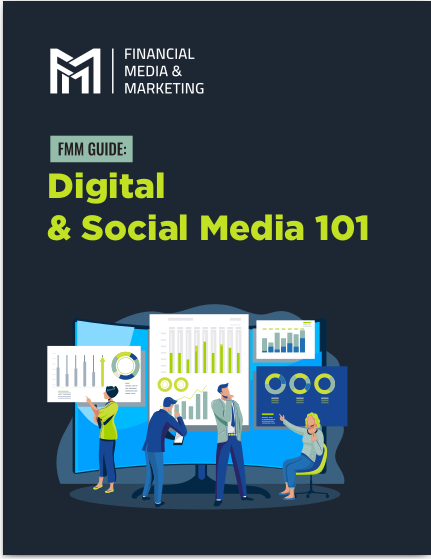Key Takeaways:
-
SEO in 2025 is more competitive than ever, but optimizing your financial advisor website with strategic keywords, local SEO, and high-quality content can help you rank higher.
-
Google prioritizes user experience, so a fast, mobile-friendly website with engaging, helpful content will attract more traffic and convert visitors into leads.
The Changing Landscape of SEO in 2025
Google’s algorithms evolve constantly, making it crucial for financial advisors to stay ahead of the game. In 2025, ranking high on Google isn’t just about stuffing your website with keywords—it’s about delivering value, optimizing for user intent, and creating an experience that keeps visitors engaged.
So, how do you make sure your financial advisor website doesn’t get lost in the noise? Let’s break down the key strategies that will boost your rankings and bring in more leads this year.
Focus on User Experience First
Google now prioritizes user experience (UX) more than ever. If your site isn’t fast, mobile-friendly, and easy to navigate, your rankings will suffer.
Optimize Website Speed
-
Google favors fast-loading pages, so aim for load times under 3 seconds.
-
Compress images, use browser caching, and minimize HTTP requests to improve speed.
-
Consider upgrading your hosting plan to a faster server if needed.
-
Enable lazy loading for images so that they load only when needed, reducing the initial page load time.
-
Minimize JavaScript and CSS files by combining them to improve overall efficiency.
Mobile-First Design Matters
-
Over 60% of searches come from mobile devices, so your site must be responsive.
-
Test your website’s mobile experience using Google’s Mobile-Friendly Test.
-
Avoid intrusive pop-ups that ruin the user experience on small screens.
-
Implement Accelerated Mobile Pages (AMP) to ensure lightning-fast performance on mobile devices.
Improve Site Navigation
-
Keep menus simple and intuitive—your visitors shouldn’t struggle to find information.
-
Use clear call-to-action (CTA) buttons to guide potential clients toward booking a consultation.
-
Implement an internal linking structure that makes it easy for users (and search engines) to explore relevant content.
Target the Right Keywords for Financial Services
SEO success starts with choosing the right keywords. But in 2025, keyword stuffing is outdated—Google rewards natural, intent-based optimization.
How to Find the Best Keywords
-
Use long-tail keywords that reflect specific financial queries, such as “how to plan for retirement in 2025.”
-
Focus on local keywords like “financial advisor near me” or “best financial planner in [your city].”
-
Leverage question-based searches by targeting phrases like “What’s the best way to invest in 2025?”
-
Use AI-powered keyword research tools to identify low-competition, high-intent keywords.
Where to Place Your Keywords
-
Page Titles & Meta Descriptions – These help Google understand your content.
-
Headers & Subheaders – Make your content easier to read while improving SEO.
-
URL Structure – Short, clean URLs with keywords rank better.
-
Image Alt Text – Helps with accessibility and boosts rankings in Google Image Search.
-
Video Descriptions – Optimizing video metadata is essential for video content SEO.
Content is King: Create High-Value, Engaging Content
Your financial advisory website must do more than list services—it should educate and engage potential clients. Google rewards high-quality, original content, so make every blog post, landing page, and service page count.
Blog Regularly with Relevant Topics
-
Write about financial trends, tax changes, and retirement planning for 2025.
-
Answer common client questions in-depth—Google loves authoritative content.
-
Use a mix of written articles, infographics, and videos to keep content engaging.
-
Implement interactive content like quizzes, financial calculators, and downloadable checklists to enhance engagement.
Refresh Old Content
-
Update outdated blog posts with fresh statistics, insights, and strategies.
-
Add internal links to newer pages to keep visitors exploring your site.
-
Repurpose high-performing blog content into videos and share them on social media.
Prioritize Readability
-
Break up text with bullet points, subheadings, and short paragraphs.
-
Aim for a conversational tone that makes complex financial topics easy to understand.
-
Include structured data markup to help search engines understand the content better.
Local SEO: Get Found in Your Area
For financial advisors, local SEO is a game-changer. When people search for financial services in their area, you want your firm to be the top result.
Optimize Your Google Business Profile
-
Keep your business name, address, and phone number (NAP) consistent across all directories.
-
Add high-quality photos, service descriptions, and client reviews.
-
Regularly post updates to keep your profile active and engaging.
Get More Reviews
-
Ask satisfied clients to leave Google reviews—they improve credibility and rankings.
-
Respond to every review (good or bad) to show engagement.
-
Include testimonials on your website with schema markup for better SEO results.
Build Local Citations
-
List your business on reputable directories like Yelp, Better Business Bureau, and financial advisor networks.
-
Ensure your contact information is consistent everywhere online.
-
Use geo-targeted landing pages with location-specific content for better reach.
Build High-Quality Backlinks
Google sees backlinks as votes of confidence in your website. The more authoritative sites linking to you, the higher your rankings.
How to Earn Backlinks
-
Guest post on finance-related blogs and news sites.
-
Partner with local businesses for cross-promotions and backlinks.
-
Get featured in online financial publications by providing expert insights.
-
Engage in digital PR campaigns to get mentioned in industry reports and studies.
Advanced Strategies: AI and Voice Search Optimization
Voice search is on the rise, and in 2025, optimizing for voice assistants like Siri and Alexa is essential.
How to Optimize for Voice Search
-
Use conversational phrases that match spoken queries.
-
Focus on question-based keywords like “What’s the best way to save for retirement?”
-
Ensure your Google Business Profile is up-to-date for local voice searches.
-
Use AI-driven chatbots to enhance user engagement and on-site time.
Track Your Progress with Analytics
SEO is an ongoing process. You need to track what’s working and adjust strategies accordingly.
Essential Metrics to Monitor
-
Organic Traffic – How many visitors come from Google?
-
Bounce Rate – Are visitors staying on your site or leaving quickly?
-
Keyword Rankings – Are your target keywords moving up in search results?
-
Conversion Rates – Are visitors turning into leads?
Use Google Analytics and Search Console
-
Identify which pages perform best and replicate their success.
-
Fix any errors that might be harming your rankings.
-
Adjust content and SEO strategies based on real data.
Take Your Financial Advisor Website to the Next Level in 2025
SEO isn’t a one-time task—it’s an ongoing strategy that keeps evolving. By focusing on user experience, high-quality content, local SEO, and AI-driven optimization, you can ensure that your financial advisor website ranks high and attracts the right clients. Stay consistent, adapt to changes, and keep refining your approach to stay ahead in the competitive world of online search.










